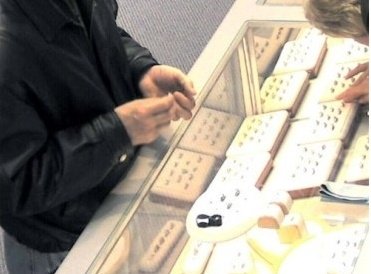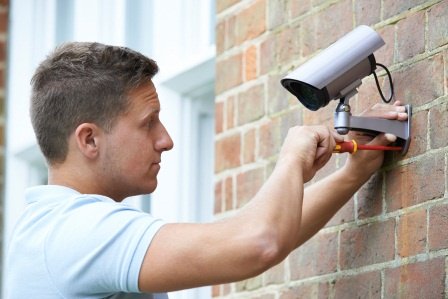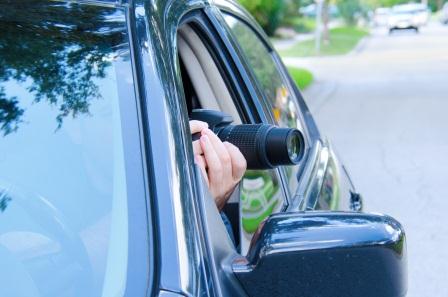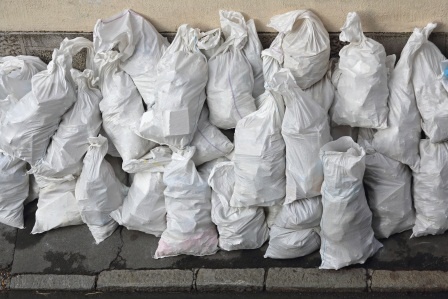It’s 9 o’clock on a Saturday and a not-so-regular crowd shuffles in. What would you do and how would the rest of your coworkers react when confronted with suspicious individuals or behaviors?
If you’ve been trained to spot these incidents as they occur, but are still unsure or indecisive about the correct actions to take, your business could be at a higher risk of facing a loss.
Studying the best practices for loss prevention for jewelry businesses isn’t just a one-time occurrence. To successfully prepare yourself for a diverse set of suspicious incidents, you need to be trained to react properly – especially in the heat of the moment.

Developing optimal security habits for even the most mundane and ordinary occurrences can be critically important too. For instance, consider the pattern you follow when opening and closing your business.
Do you go through the motions twice a day, every day, thinking only about opening up for customers and closing down to go home as fast as possible? Or do you have a systematic approach that allows you to be alert of your surroundings and mindful of any potential criminal activity?
The more sensitive you become to situations like these, the more prepared you will be to face them – regardless of how they present themselves.
Loss prevention for jewelry businesses won't always break down to a true-or-false decision, but it’s a good starting point to see how prepared you would be.
Consider these seven distinct scenarios and see what your instincts tell you:
Opening and Closing Procedures
True or false?
It is safer to take the same route to and from work each day rather than varying routes.

Answer: False
Criminals love predictable patterns. If they can pinpoint your location at a specific time, it increases their confidence of executing the crime. By keeping them guessing, they won’t be able to craft a plan that has a high likelihood of succeeding.
Theft
True or false?
Using identification tags on your jewelry is the only fail-safe method of protecting your jewelry.

Answer: False
ID tags are an extremely effective loss prevention tool for jewelry businesses, but solely relying on them can leave you exposed. After all, what if a criminal switches the tags or the merchandise that you have tagged? Be sure to loupe merchandise before and after letting a customer handle it.
Showrooms and Showcases
True or false:
All high-valued merchandise should be displayed in a single showcase located at the back of the store.

Answer: False
When crimes such as smash-and-grab robberies and sneak thefts occur, they can result in a substantial loss with only a few items being stolen. Spreading your most valuable merchandise out can minimize a loss if one occurs and may even be a deterrent to criminals actively casing your store. Since the criminals aim to be in and out in a moment’s notice, a spread out inventory can significantly slow them down.
Surveillance
True or False?
The proper configuration of your surveillance camera network should allow your system to capture high-quality facial images as recommended by the FBI.

Answer: True
The availability of high-resolution video and still images has assisted law enforcement in identifying many theft and mysterious disappearance losses. Talk to your video surveillance system installer about upgrading your equipment to attain video surveillance of acceptable quality.
Casing
True or false?
You only need to record the time and date of an observation in your suspicious incident logbook?

Answer: False
When in doubt, record everything you can recall. Be as descriptive as you can regarding the people involved, noting your observations beyond just their physical characteristics. What kind of car did they drive? What types of questions were they asking? The more detail you provide, the more likely another person will be able to identify that behavior if it occurs again.
Delivery Personnel
True or false?
Employees do not need to know the proper identification that a legitimate courier, delivery or other tradesman are required to carry.

Answer: False
Veteran criminals will attempt to access your business by disguising themselves and exploiting employees. Make sure every staff member is knowledgeable in the procedures for verifying the identities of visitors who may claim they're picking up a package or making an inspection.
Housekeeping
True or false?
Clear plastic bags should be used to store trash.

Answer: True
It may not be a measure that prevents you from mistakenly throwing something away, but a clear bag may make it easier for you to find something that has gone missing.